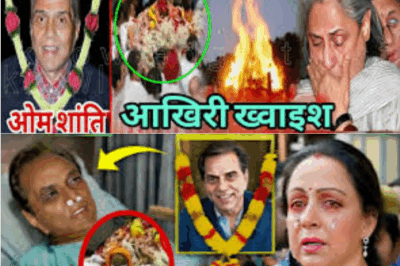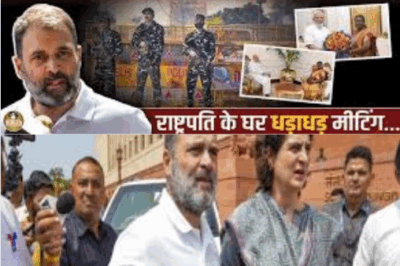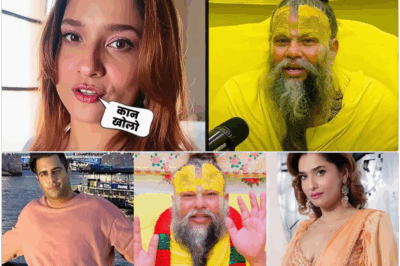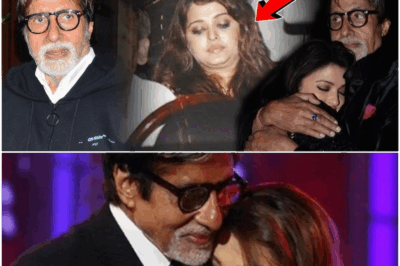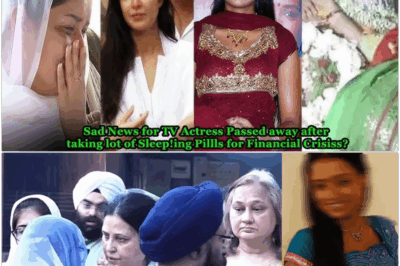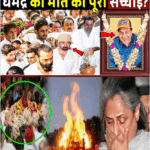Ankita Lokhande Solid Reply Trolls Targeting Premanand Maharaj
In the age of digital amplification, religious leaders and spiritual figures are no exception to the virality and scrutiny that come with the widespread reach of social media. Recently, two prominent spiritual personalities — Aniruddhacharya Ji Maharaj and Premanand Maharaj — found themselves at the center of a heated online debate due to some controversial statements that went viral. The debate intensified when these clips, often shared in isolation, triggered outrage among celebrities, influencers, and the general public. At the same time, others, including well-known actress Ankita Lokhande, came forward in defense, demanding that the context behind the statements be properly understood before forming judgments.
It all began when a short video clip of Aniruddhacharya Ji surfaced online, in which he allegedly said that “today’s 25-year-old girls go around having affairs at four or five places.” The crude language used in the clip — specifically the phrase “मुंह मार कर आती हैं” — attracted significant backlash, being labeled as derogatory and offensive towards women. Shortly after this, a separate clip featuring Premanand Maharaj was also circulated, in which he appeared to say that “only two or four out of a hundred girls are pure.”
As is often the case with viral content, these clips were quickly picked up, shared across platforms, and dissected, mostly without full context. Soon enough, celebrities like Khushboo Patani (sister of Bollywood actress Disha Patani) and Munmun Dutta (known for her role in Taarak Mehta Ka Ooltah Chashmah) expressed their outrage. Khushboo, in particular, went as far as saying that if Aniruddhacharya had made such a comment in her presence, she would have given him a proper response and explained what “muuh maarna” means in the real world. She also called him “anti-national,” urging her followers to avoid supporting such individuals.
However, not all public figures echoed the sentiment of outrage. Television actress Ankita Lokhande, known for her fearless and straightforward personality, took a stand in favor of Premanand Maharaj. On her Instagram handle, Ankita posted the complete video of the viral statement, claiming that it had been taken out of context. According to her, the original message was balanced, directed at both men and women, and was part of a broader spiritual discourse, not an attempt to defame or shame women specifically.
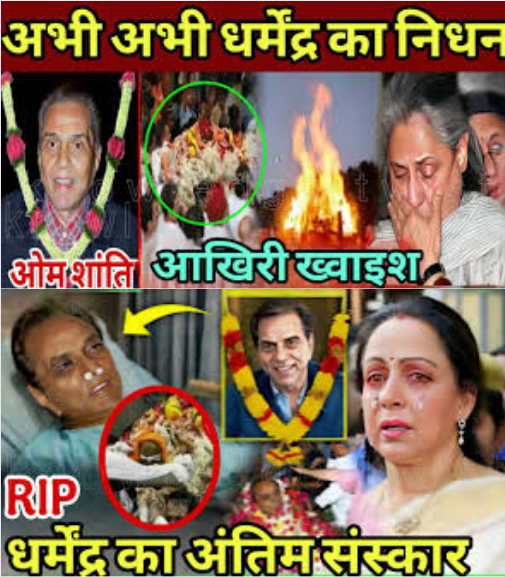
Ankita wrote, “Bilkul sahi kaha, kaan kholo. Dono, ladki aur ladke ke liye bola hai. Jo bol rahe hain woh bilkul sahi hai. Premanand Maharaj ko poora samarthan.” She emphasized that spiritual leaders like him bring simplicity and truth back into spiritual life and that his words had been wrongly interpreted by those eager to outrage without understanding. According to her, such figures are necessary in today’s chaotic world, and there was “nothing wrong” in what was said when seen in full context.
This stark difference in opinion opened a new front in the ongoing culture war between liberal sensibilities and traditional spiritual or moral values. The internet soon became divided — one side labeling the spiritual leaders as regressive and sexist, the other defending them as misunderstood figures delivering tough truths about modern-day relationships and morality.
The heart of the controversy lies in context and interpretation. Were these statements truly meant to generalize and demean women, or were they poorly worded but sincere reflections on changing societal norms? Unfortunately, in the age of social media, where attention spans are short and outrage is often immediate, there’s little room left for nuance or debate. The echo chambers of the internet ensure that most people only hear what they want to hear — and react accordingly.
It’s also important to recognize the responsibility of public figures, including spiritual leaders, in choosing their words carefully. When someone with a large following — spiritual or otherwise — makes a sweeping statement, even if not meant to offend, it carries weight. Words shape perceptions, especially when directed at gender and youth. What might be intended as a moral reflection can quickly be seen as moral policing or even misogyny.
On the flip side, selectively edited clips, often removed from their larger sermon or speech, are misleading and harmful. A few seconds clipped out of a half-hour discourse cannot be taken as a representation of the entire message. This calls for ethical journalism and social media responsibility — both from those who share and those who comment.

The role of celebrities in such debates also cannot be underestimated. Figures like Khushboo Patani and Munmun Dutta, who wield significant influence among youth, chose to call out these gurus publicly. Their bold stances resonated with many who believe that spiritual leaders should avoid passing judgments on women or making statements about purity in today’s era of gender equality.
At the same time, Ankita Lokhande’s defense of Premanand Maharaj shows that not everyone is willing to jump on the bandwagon of outrage without doing their research. Her decision to post the entire video before forming a judgment was an important reminder of the importance of full context. She reminded everyone that while criticism is a right, it must be informed criticism.
In the larger scheme of things, this controversy sheds light on some pressing issues — the blurred line between tradition and modernity, the evolving roles of women and men in Indian society, and the challenges of communication in a highly polarized digital age. It also underscores the growing importance of digital literacy — the ability to distinguish between authentic messages and manipulated content, between real offense and orchestrated outrage.
For the millions of followers who look up to spiritual figures for guidance, these debates can be confusing. Are their gurus speaking the truth, or are they out of touch with today’s realities? Are the critics genuinely concerned about misogyny, or are they overreacting for visibility? There may never be a clear answer, but the dialogue itself is crucial. If it leads to more awareness, deeper understanding, and a better balance between faith and reason, then perhaps this debate — however controversial — was necessary.
As for the future, it’s likely that spiritual leaders will need to adapt their communication style to the digital age, ensuring that their words cannot be taken out of context or misunderstood. Meanwhile, audiences too must evolve — learning to listen carefully, research thoroughly, and judge wisely.
In conclusion, the controversy surrounding Aniruddhacharya and Premanand Maharaj is not just about two individuals or two clips. It’s a mirror reflecting the complex dynamics of modern Indian society — torn between reverence for tradition and the demands of modern sensibilities. Whether one sides with the critics or the defenders, one thing remains clear: words matter, context matters, and intentions matter even more.
Play video :
News
Oh God 😭 Dharmendra died suddenly 😭? Even his last wish remained unfulfilled? Dharmender Funeral video
Oh God 😭 Dharmendra died suddenly 😭? Even his last wish remained unfulfilled? Dharmender Funeral video Dharmendra Singh Deol, a…
Will there be emergency like situation on 5th August? Army will come to stop Rahul Gandhi!
Will there be emergency like situation on 5th August? Army will come to stop Rahul Gandhi! India is currently witnessing…
Ankita Lokhande’s Defiant Stand: Defending Premanand Maharaj Amidst Social Media Outrage
Ankita Lokhande’s Defiant Stand: Defending Premanand Maharaj Amidst Social Media Outrage The Indian social media landscape is no stranger to…
Shura Khan flaunting big Baby Bump right before her Delivery with Arbaaz Khan with her Baby Boy!
Shura Khan flaunting big Baby Bump right before her Delivery with Arbaaz Khan with her Baby Boy! . . ….
Aishwarya who considers Amitabh as her enemy? Has she forgotten what he did for her? Amitabh Aish
Aishwarya who considers Amitabh as her enemy? Has she forgotten what he did for her? Amitabh Aish . . ….
Shockwaves in Showbiz: The Tragic Death of San Rachel Ignites Urgent Conversations on Mental Health and Financial Pressure
Shockwaves in Showbiz: The Tragic Death of San Rachel Ignites Urgent Conversations on Mental Health and Financial Pressure The Indian…
End of content
No more pages to load

